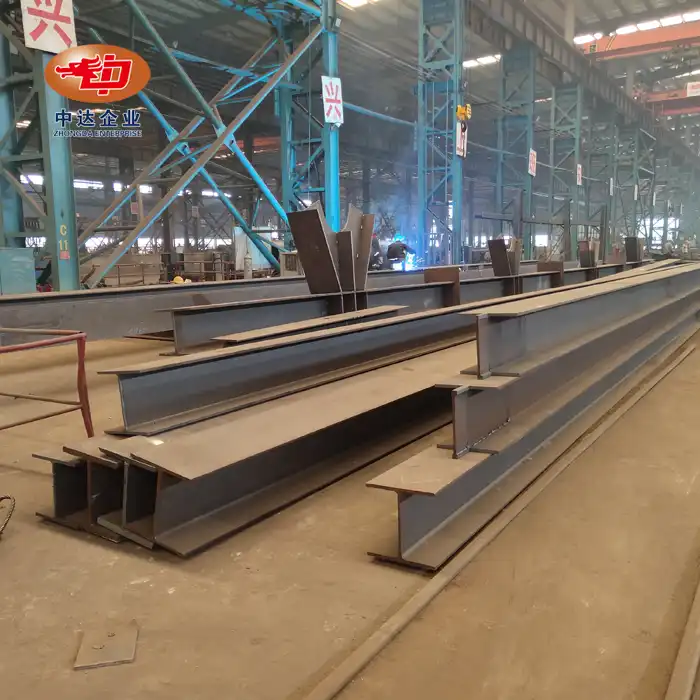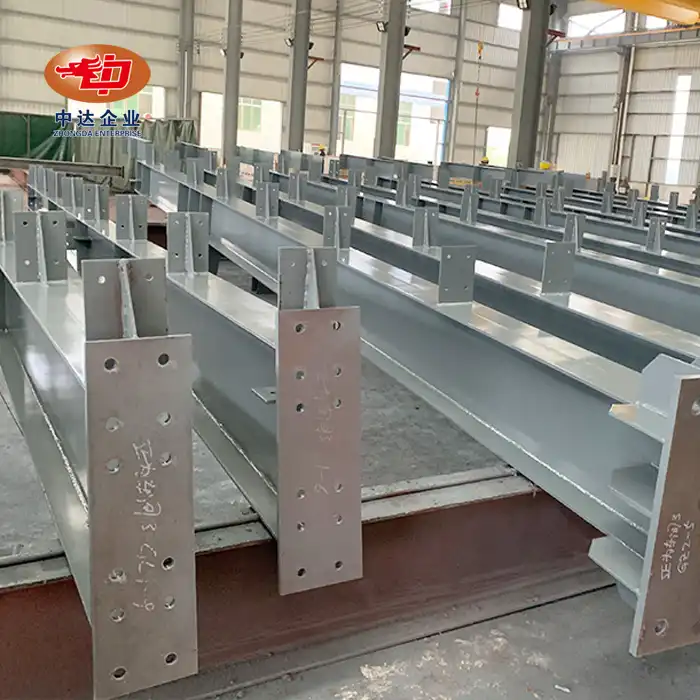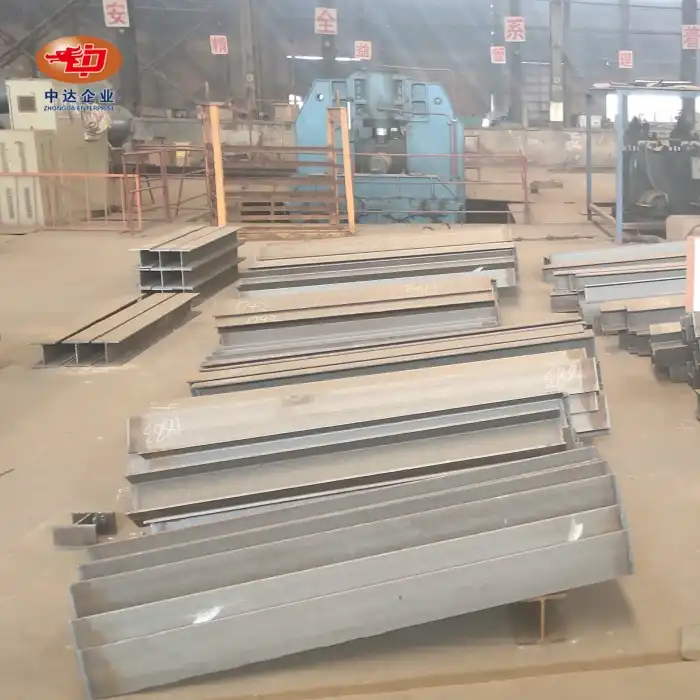The Anatomy and Mechanics of Steel-Concrete Composite Beams
Components and Structure
Steel-concrete composite beams consist of several key components working in harmony. The primary elements include a steel section, typically an I-beam or H-beam, and a concrete slab cast on top. These components are connected using shear connectors, such as headed studs or channels, which ensure composite action between the steel and concrete. At Zhongda Steel, we utilize high-strength Q345D steel for the beam section and C50 grade concrete for the slab, providing exceptional strength and durability.
Load Transfer Mechanism
The genius of composite beams lies in their ability to distribute loads efficiently. When a load is applied, the steel section primarily resists tensile forces, while the concrete slab handles compressive forces. This division of labor allows each material to play to its strengths, resulting in a beam that can support heavier loads over longer spans than traditional beams. Our proprietary shear stud design, featuring Φ19×150mm studs with ≥150kN shear capacity, ensures optimal load transfer between steel and concrete components.
Composite Action and Efficiency
The secret sauce of composite beams is the "composite action" achieved through the shear connectors. This phenomenon allows the steel and concrete to work as a single unit, dramatically increasing the beam's moment of inertia and stiffness. The result is a more efficient use of materials, leading to lighter structures, reduced floor depths, and ultimately, more cost-effective construction. Our advanced manufacturing processes and quality control measures ensure that every beam we produce maximizes this composite action for peak performance.
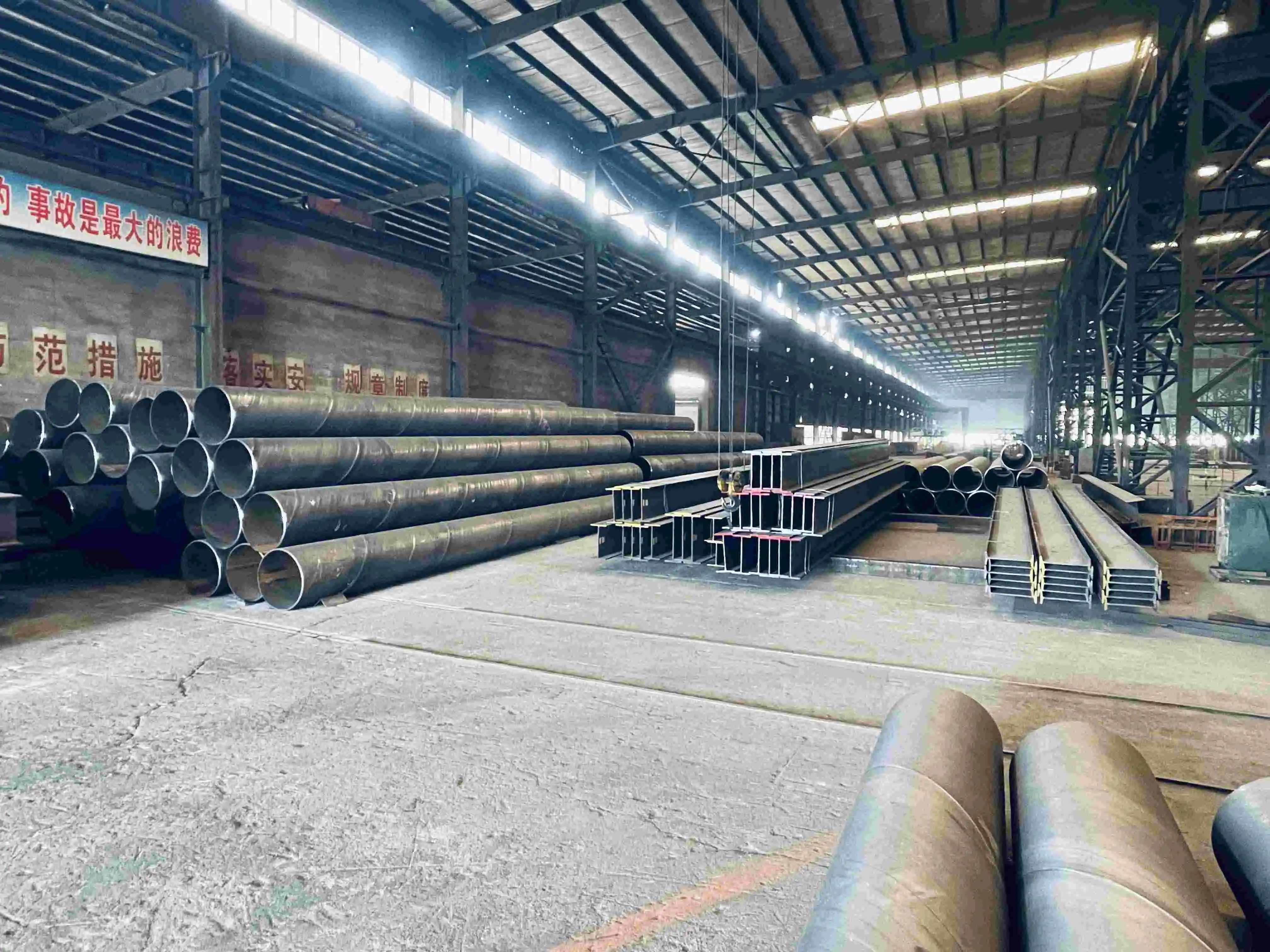
Advantages and Applications of Steel-Concrete Composite Beams
Structural Benefits
Steel-concrete composite beams offer a plethora of structural advantages. They boast enhanced load-bearing capacity, allowing for longer spans and reduced beam depths. This translates to more flexible floor plans and increased usable space in buildings. The composite action also improves the beam's resistance to deflection and vibration, enhancing occupant comfort. At Zhongda Steel, our composite beams are engineered to provide spans from 30-60 meters, with custom designs capable of reaching up to 120 meters, offering unparalleled design flexibility for your projects.
Fire and Seismic Performance
One of the standout features of composite beams is their superior fire resistance compared to bare steel beams. The concrete encasement acts as a heat sink and protective layer, significantly increasing the time it takes for the steel to reach critical temperatures during a fire. Additionally, our composite beams are designed with seismic resilience in mind, having passed rigorous 8-degree earthquake simulation tests. This combination of fire and seismic resistance makes our composite beams an excellent choice for high-rise buildings and critical infrastructure projects.
Versatility in Construction
Steel-concrete composite beams find applications across a wide spectrum of construction projects. They're particularly well-suited for commercial buildings, where long spans and open floor plans are desirable. Industrial structures benefit from their high load-bearing capacity and durability. In bridge construction, composite beams allow for longer spans and reduced structural depth, leading to more elegant and efficient designs. Our team at Zhongda Steel has successfully implemented composite beam solutions in over 60 landmark projects, demonstrating their versatility and effectiveness across diverse applications.
Innovations and Future Trends in Composite Beam Technology
Advanced Materials and Design
The field of steel-concrete composite beam technology is continuously evolving, with ongoing research into new materials and design methodologies. High-performance concrete mixes, ultra-high-strength steels, and innovative shear connector designs are pushing the boundaries of what's possible with composite beams. At Zhongda Steel, we're at the forefront of these developments, with our R&D team constantly exploring new ways to enhance the performance and efficiency of our composite beam products.
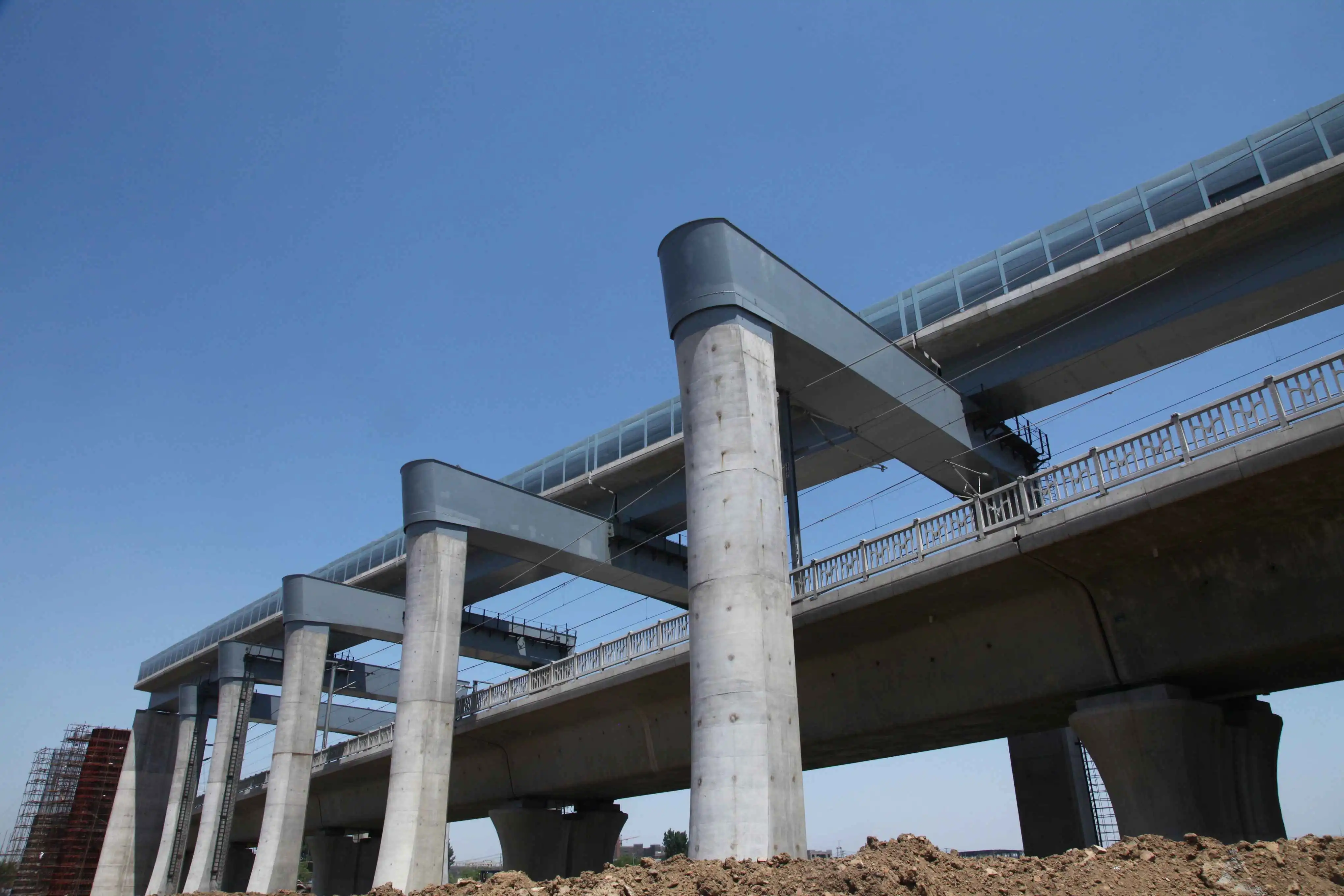
Sustainable Construction Practices
As the construction industry moves towards more sustainable practices, composite beams are playing a crucial role. Their efficient use of materials and potential for incorporating recycled steel and supplementary cementitious materials align well with green building initiatives. Our manufacturing processes at Zhongda Steel are designed with sustainability in mind, minimizing waste and energy consumption while maximizing the use of eco-friendly materials.
Integration with Smart Building Technologies
The future of composite beams lies in their integration with smart building technologies. Embedded sensors for structural health monitoring, integration with BIM (Building Information Modeling) systems, and adaptability to modular construction techniques are all areas of active development. Zhongda Steel is pioneering these advancements, offering BIM-driven prefabrication services that seamlessly integrate our composite beam solutions into the digital construction ecosystem.
Conclusion
Steel-concrete composite beams represent a pinnacle of structural engineering, offering a perfect blend of strength, efficiency, and versatility. As we've explored, these innovative elements provide numerous benefits, from enhanced load-bearing capacity to improved fire resistance and seismic performance. At Zhongda Steel, we're committed to pushing the boundaries of composite beam technology, ensuring that our products meet the evolving needs of the construction industry while setting new standards for quality and performance.
Contact Us
Ready to elevate your construction project with cutting-edge steel-concrete composite beams? Zhongda Steel is here to help. Our team of experts can provide tailored solutions to meet your specific project requirements, backed by our industry-leading manufacturing capabilities and unwavering commitment to quality. Contact us today at Ava@zd-steels.com to discover how our innovative composite beam technology can bring your architectural vision to life.











